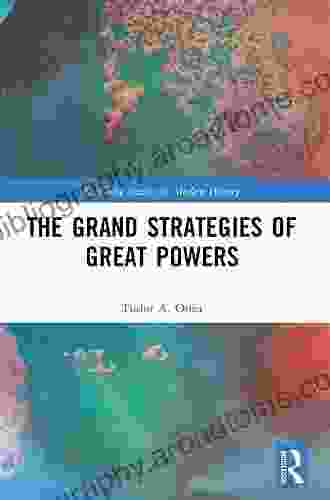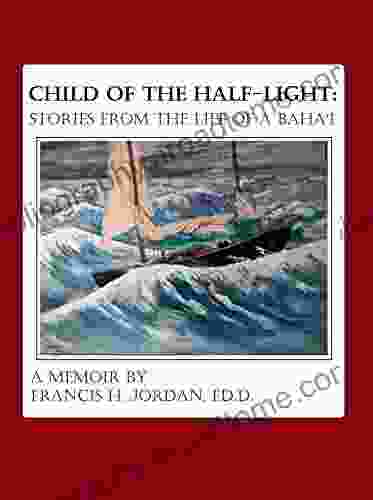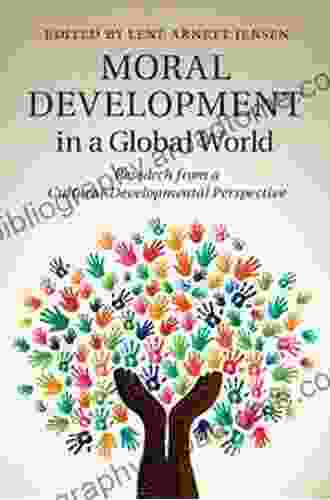Sensory System: Explore the Marvelous World of Human Perception

From the moment we emerge into the world, we are bombarded with a constant stream of sensory information. Our senses of sight, hearing, touch, smell, and taste allow us to navigate our surroundings, interact with others, and experience the full spectrum of human emotions. The sensory system is a complex and multifaceted network of cells, tissues, and organs that work together to receive, process, and interpret external stimuli, creating our unique and ever-changing perception of reality.
4.4 out of 5
| Language | : | English |
| File size | : | 2905 KB |
| Text-to-Speech | : | Enabled |
| Screen Reader | : | Supported |
| Enhanced typesetting | : | Enabled |
| Print length | : | 158 pages |
| Lending | : | Enabled |
The Five Senses
The human sensory system is traditionally divided into five primary senses: vision, hearing, touch, smell, and taste. Each sense is specialized to detect a specific type of stimulus and transmit it to the brain for processing.
- Vision: Our eyes detect light waves and convert them into electrical signals that are transmitted to the brain. The brain then interprets these signals to create images, allowing us to perceive the world around us in all its visual splendor.
- Hearing: Our ears detect sound waves and convert them into electrical signals that are transmitted to the brain. The brain then interprets these signals to create sounds, allowing us to communicate, enjoy music, and navigate our auditory environment.
- Touch: Our skin contains a network of sensory receptors that detect changes in temperature, pressure, and texture. This allows us to feel the world around us, interact with objects, and experience sensations such as pain, pleasure, and touch.
- Smell: Our noses contain olfactory receptors that detect chemical molecules in the air. These molecules are then transmitted to the brain, which interprets them as smells. Our sense of smell is closely linked to our sense of taste and can trigger memories and emotions.
- Taste: Our tongues contain taste buds that detect dissolved chemicals in our food. These chemicals are then transmitted to the brain, which interprets them as tastes. Our sense of taste allows us to enjoy a wide range of flavors and helps us to determine whether food is safe to eat.
The Importance of the Sensory System
Our sensory system is essential for our survival and well-being. It allows us to interact with our environment, avoid danger, and experience the full richness of life. Without our senses, we would be lost in a world of darkness and silence, unable to experience the beauty of nature, the warmth of human connection, or the joy of a delicious meal.
DisFree Downloads of the Sensory System
There are a wide range of disFree Downloads that can affect the sensory system, ranging from mild to severe. These disFree Downloads can result from genetic mutations, injuries, or exposure to toxins. Some common sensory disFree Downloads include:
- Visual impairments, such as nearsightedness, farsightedness, and color blindness
- Hearing impairments, such as deafness, tinnitus, and Ménière's disease
- Touch disFree Downloads, such as numbness, tingling, and burning sensations
- Smell disFree Downloads, such as anosmia (loss of smell) and parosmia (distorted sense of smell)
- Taste disFree Downloads, such as ageusia (loss of taste) and dysgeusia (altered sense of taste)
The sensory system is a remarkable gift that allows us to experience the world around us in all its rich and vibrant glory. Our senses connect us to our environment, our loved ones, and ourselves. By understanding the intricacies of the sensory system, we can gain a deeper appreciation for the marvels of human perception and the precious gift of our own senses.
4.4 out of 5
| Language | : | English |
| File size | : | 2905 KB |
| Text-to-Speech | : | Enabled |
| Screen Reader | : | Supported |
| Enhanced typesetting | : | Enabled |
| Print length | : | 158 pages |
| Lending | : | Enabled |
Do you want to contribute by writing guest posts on this blog?
Please contact us and send us a resume of previous articles that you have written.
 Book
Book Novel
Novel Page
Page Chapter
Chapter Text
Text Story
Story Genre
Genre Reader
Reader Library
Library Paperback
Paperback E-book
E-book Magazine
Magazine Newspaper
Newspaper Paragraph
Paragraph Sentence
Sentence Bookmark
Bookmark Shelf
Shelf Glossary
Glossary Bibliography
Bibliography Foreword
Foreword Preface
Preface Synopsis
Synopsis Annotation
Annotation Footnote
Footnote Manuscript
Manuscript Scroll
Scroll Codex
Codex Tome
Tome Bestseller
Bestseller Classics
Classics Library card
Library card Narrative
Narrative Biography
Biography Autobiography
Autobiography Memoir
Memoir Reference
Reference Encyclopedia
Encyclopedia Emilio Pimentel Reid
Emilio Pimentel Reid Louis Charles Fougeret De Monbron
Louis Charles Fougeret De Monbron Ernesto San Giacomo
Ernesto San Giacomo Emily Slonina
Emily Slonina Esther Yoder Strahan
Esther Yoder Strahan Ernst Cassirer
Ernst Cassirer Elvis Costello
Elvis Costello Ewa Mazierska
Ewa Mazierska Evie Sparkes
Evie Sparkes Emma Josh
Emma Josh Robin Hesketh
Robin Hesketh Ethan Kind
Ethan Kind Paul Ticher
Paul Ticher Lee David
Lee David William Preston Vaughn
William Preston Vaughn Emmanuel Blessing
Emmanuel Blessing Eric Chester
Eric Chester Shane Windham
Shane Windham Faith Annette Sand
Faith Annette Sand Evan Silberstein
Evan Silberstein
Light bulbAdvertise smarter! Our strategic ad space ensures maximum exposure. Reserve your spot today!

 Jaylen MitchellThe Grand Strategies of Great Powers: Deciphering the Blueprint of Global...
Jaylen MitchellThe Grand Strategies of Great Powers: Deciphering the Blueprint of Global...
 Adrien BlairCreate and Manage Your Budget: The Key to Stress-Free Savings and Financial...
Adrien BlairCreate and Manage Your Budget: The Key to Stress-Free Savings and Financial...
 Gabriel MistralUnleash Your Storytelling Potential: Dive into the Vale Technique of Screen...
Gabriel MistralUnleash Your Storytelling Potential: Dive into the Vale Technique of Screen... Isaiah PowellFollow ·17.4k
Isaiah PowellFollow ·17.4k George Bernard ShawFollow ·12.7k
George Bernard ShawFollow ·12.7k Ian McEwanFollow ·14.9k
Ian McEwanFollow ·14.9k Richard AdamsFollow ·3.6k
Richard AdamsFollow ·3.6k Jorge AmadoFollow ·17.3k
Jorge AmadoFollow ·17.3k Junichiro TanizakiFollow ·9.3k
Junichiro TanizakiFollow ·9.3k Ken FollettFollow ·7.3k
Ken FollettFollow ·7.3k Alfred RossFollow ·13.8k
Alfred RossFollow ·13.8k

 Troy Simmons
Troy SimmonsStories From The Life Of Baha: A Must-Read For Spiritual...
Discover the Inspiring Teachings and Enriching...

 Wesley Reed
Wesley ReedDuke Review of MRI Principles: Case Review - Your Gateway...
Unveiling the Essence...

 Ralph Waldo Emerson
Ralph Waldo EmersonThe Big Book of NFTs: Your Ultimate Guide to the Digital...
In the rapidly evolving world of digital...

 Jason Hayes
Jason HayesUnveiling the Labyrinth: The Cheat Sheet Novel and its...
In the realm...
4.4 out of 5
| Language | : | English |
| File size | : | 2905 KB |
| Text-to-Speech | : | Enabled |
| Screen Reader | : | Supported |
| Enhanced typesetting | : | Enabled |
| Print length | : | 158 pages |
| Lending | : | Enabled |










